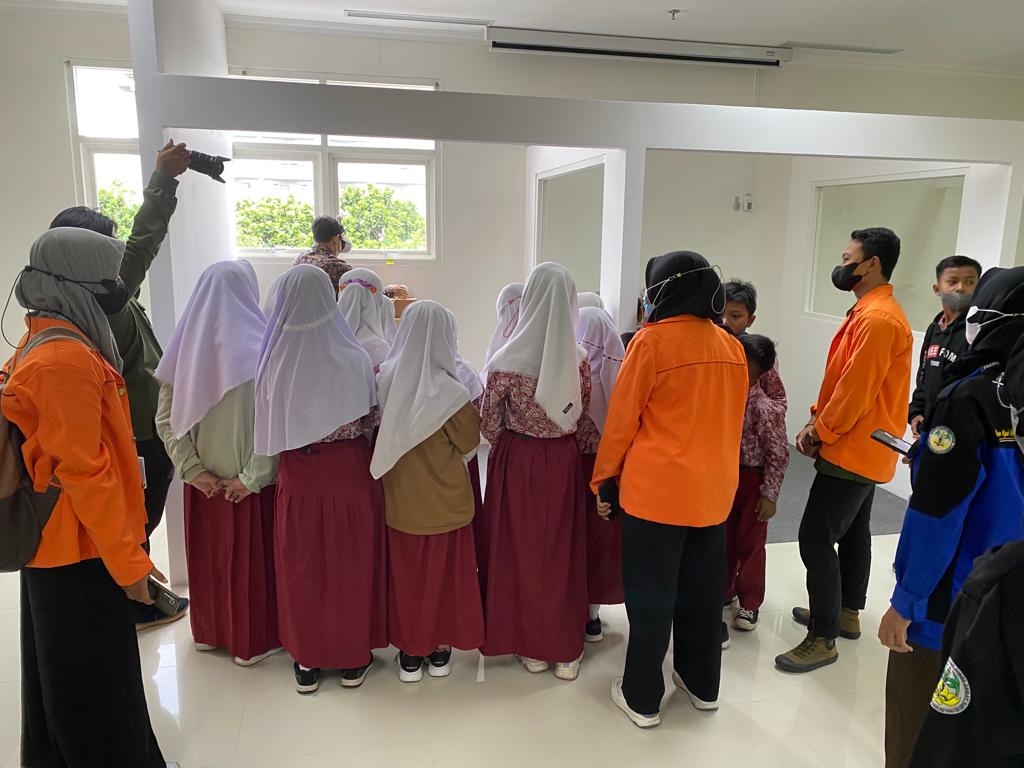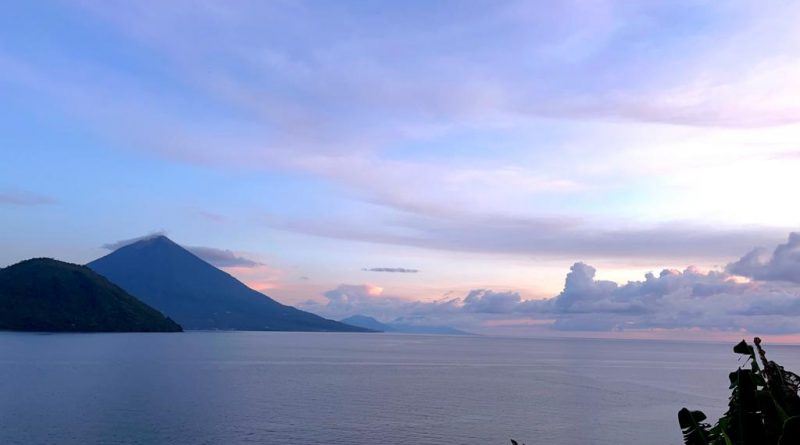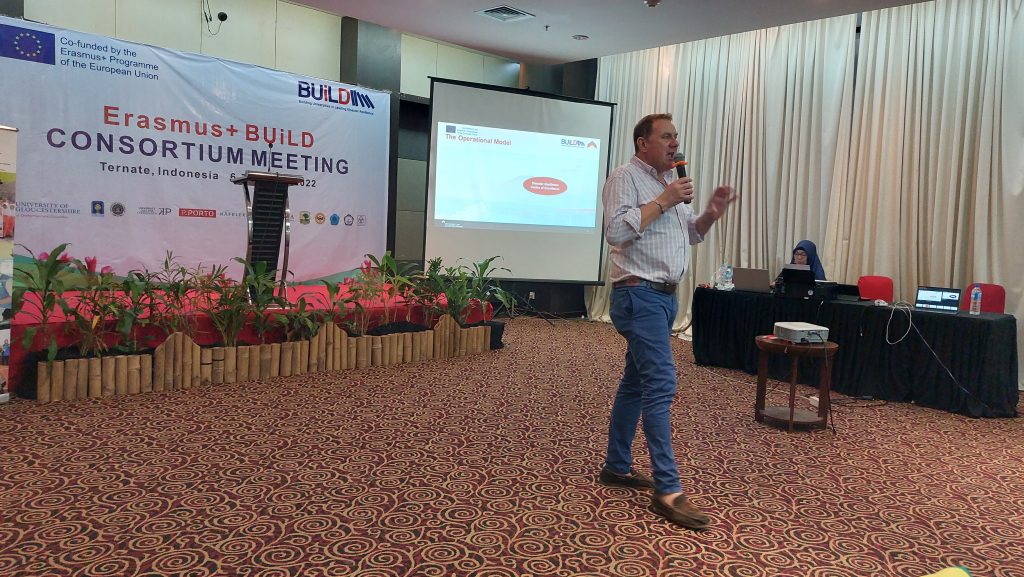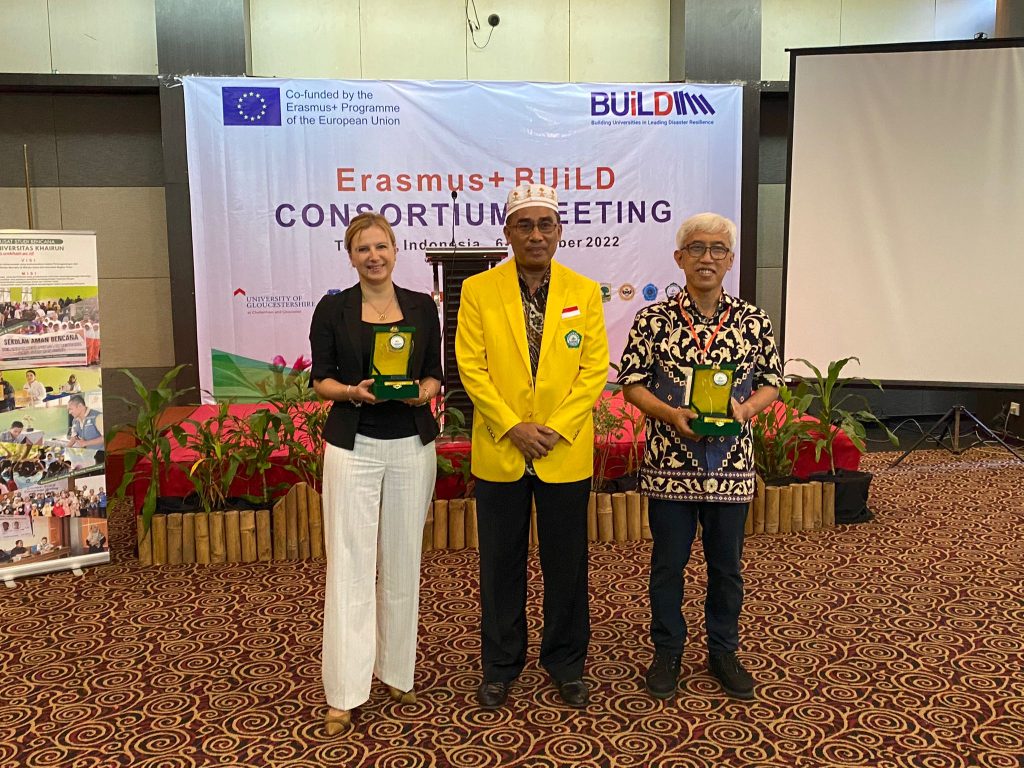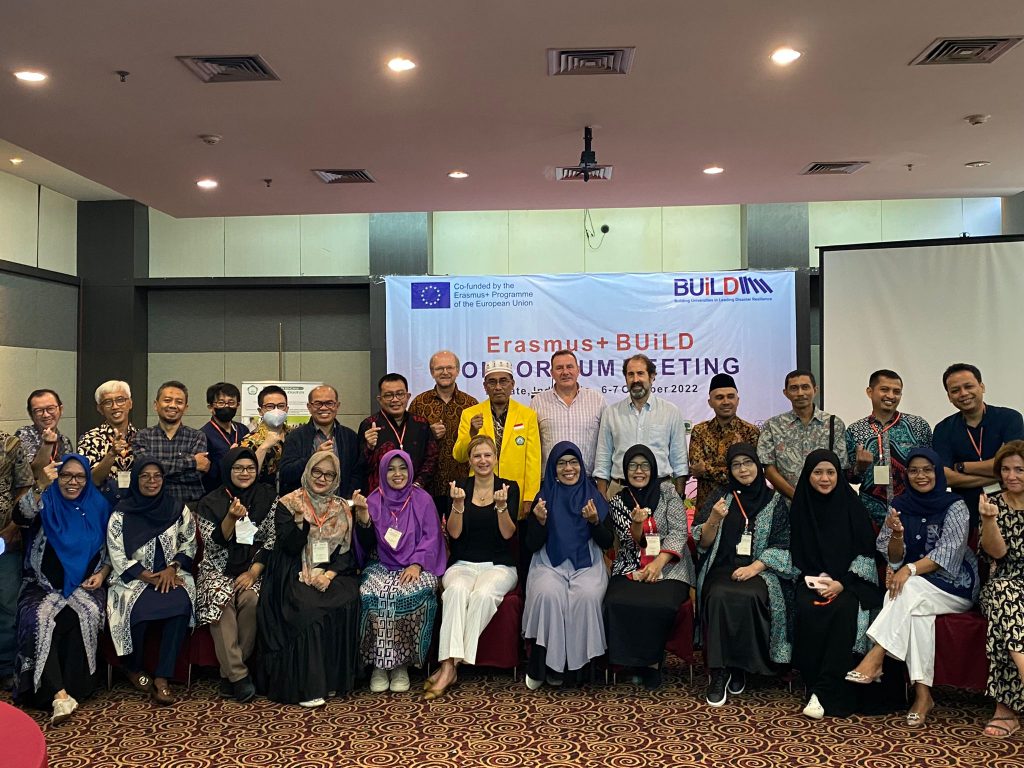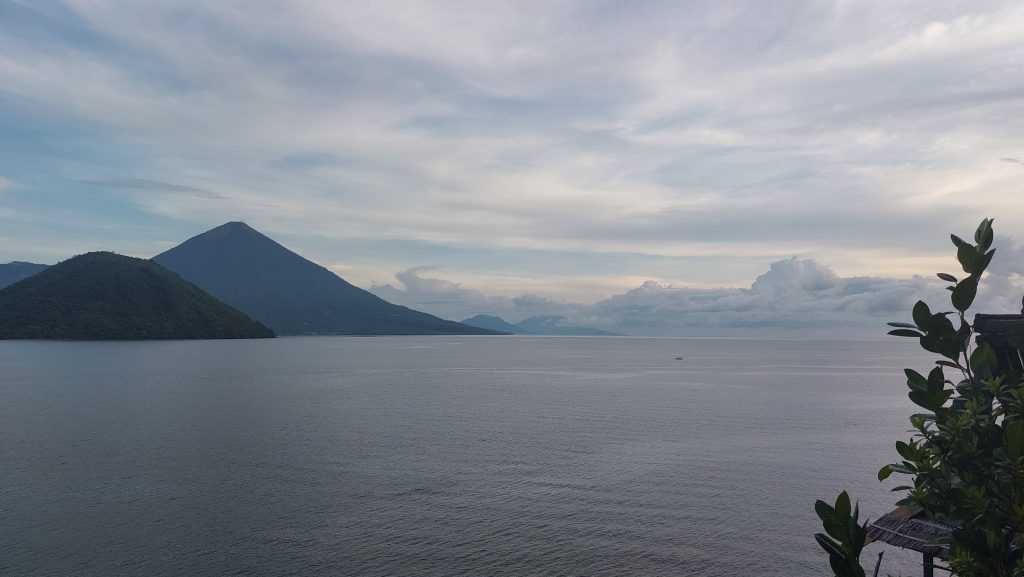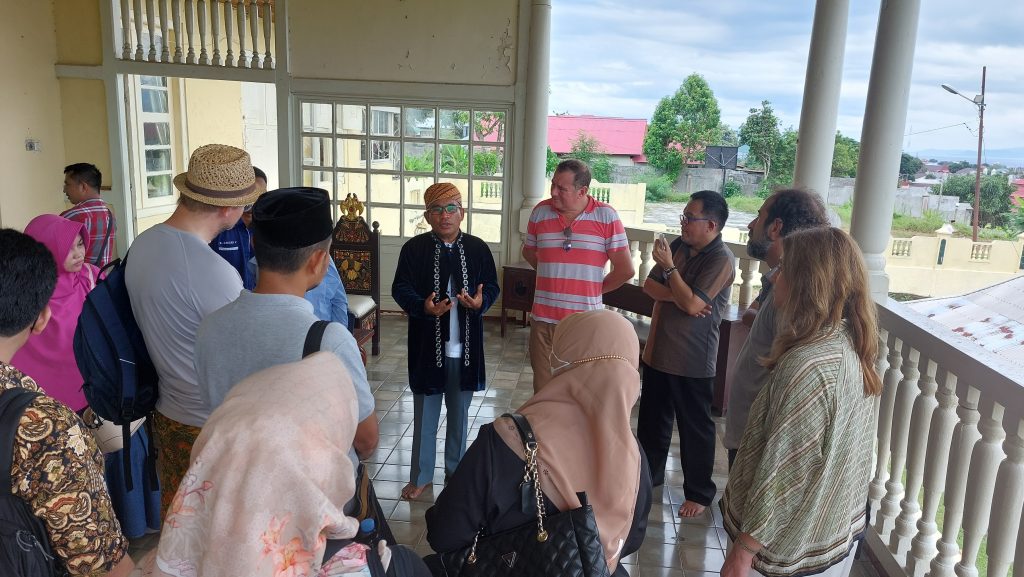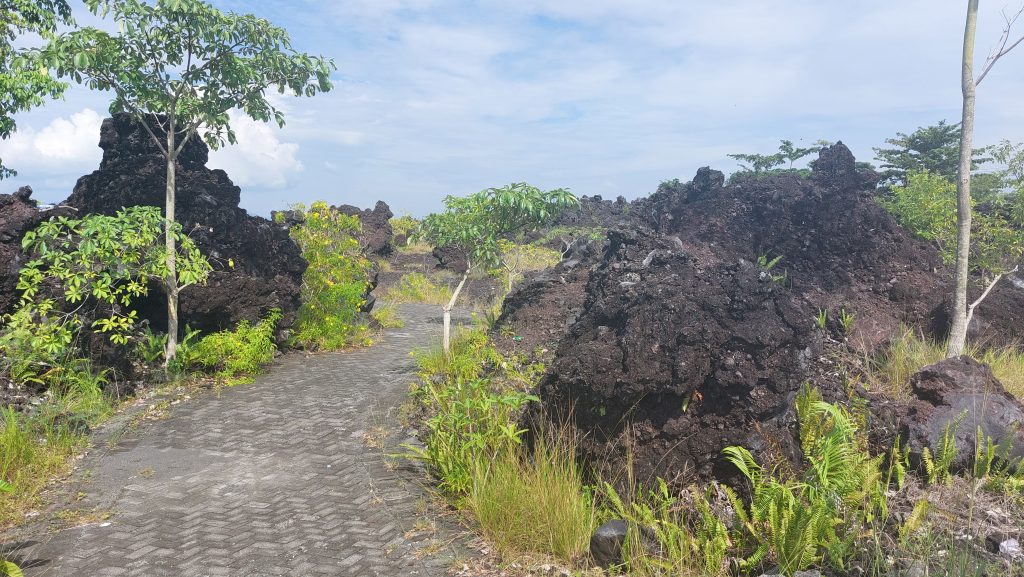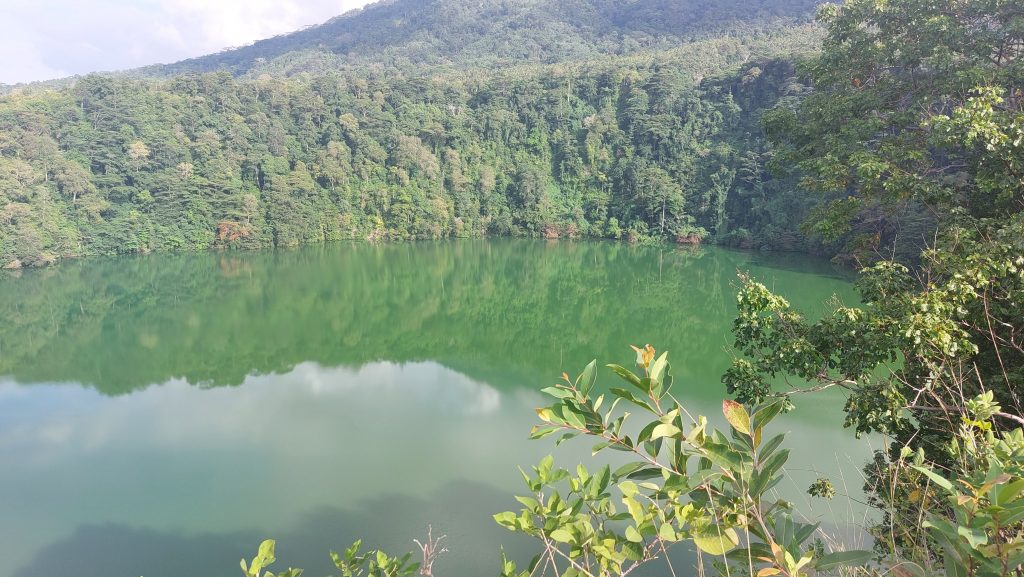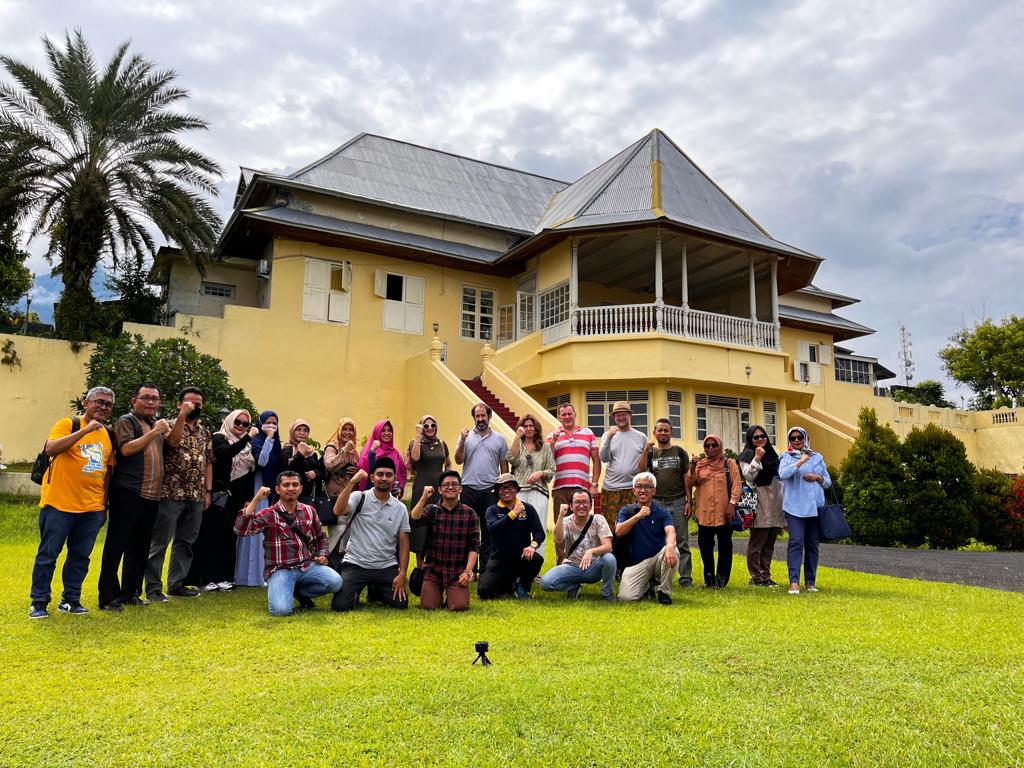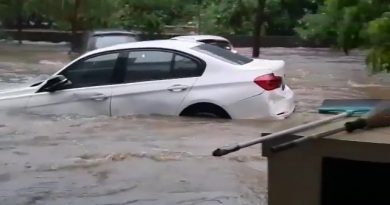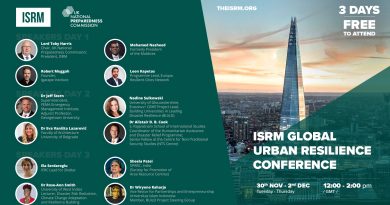Tease, Trial, Train – Disaster Campaign Planning at Project Consortium Meeting Universitas Khairun
Universitas Khairun welcomed the BUiLD Project Consortium in Ternate on the 6th and 7th October. The main agenda items were the development of disaster awareness campaigns, the finalisation of institutional action plans for institutional disaster resilience governance and the the development of key performance indicators for impact and sustainability planning.
Antonio Marques and Viviana Meirinhos from P.Porto introduced their ideas for delivering a disaster awareness campain using the training collateral developed as part of this project. The catalogue of resources includes an educational video about how to prepare for and behave during an earthquake in a residential setting, a fully developed virtual reality environment based on the same scenario and guidelines on the use of the tool for training purposes.
The proposal for campaign planning is based on a “Tease, Trial, Train” approach, whereby video material would be used on social media and at exhibitions for both educational and promotional purposes to raise awareness of the BUiLD virtual reality training solution. Apart from staff and students, the campaign would be aimed at local businesses and community leaders who, following an informal trial at designated events of at local BUiLD Centres of Excellence in Disaster Resilience, might be encouraged to deliver the training to their workforce or members of the wider community. Depending on the stakeholders involved, this training could be delivered on a charitable or commercial basis as an income stream for local centres. Colleagues from P.Porto introduced a campaign planning template for partners to use when planning their local campaigns.
Following on from the consortium meeting in June, Michael Fuller MBE (University of Gloucestershire) convened a further workshop to assist partners in building their institutional models for disaster resilience governance. The underlying processes of this include the articulation of clear governance structures for different disaster resilience related activities pursued by local BUiLD Centres of Excellence in Disaster Resilience, the articulation of a strategy for enhancing disaster management and learning capability in collaboration with internal and external stakeholders, and the articulation of common key success criteria. Partners were presented with a preliminary version of the institutional audit document for this project result.
This workshop was followed by an interactive discussion convened by Project Quality Lead Paul Schober (Hafelekar, Austria) during which the group discussed the range of appropriate key performance indicators and agreed that these should be common across all centres for benchmarking purpose and also to allow for an easy future expansion of the the BUiLD Disaster Resilience Framework. A research exhibition convened by Professor Neil Towers was ongoing during the day to showcase the diverse research expertise of consortium partners in the disaster resilience discipline.
Located in North Maluku, the island of Ternate is entirely comprised by active stratovolcano Mt Gamalama, leaving Ternate and its residents vulnerable to the risk of catastrophic eruptions. On the second day, the group visited Batu Angus, a wide deposit of burning rocks from a previous volcanic eruption close to Ternate beach and Big Tolire Lake, a crater lake of Mt. Gamalama that provides a unique eco system for local crocodiles. The group was fortunate to receive an audience at the Sultan’s Palace, where they had the opportunity to speak to a local Minister about Ternate’s economic priorities.

